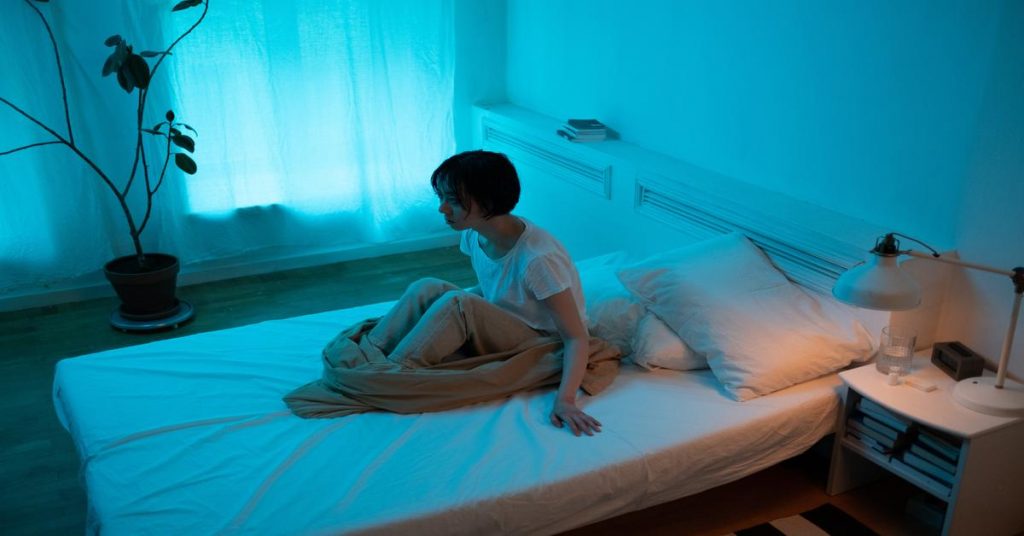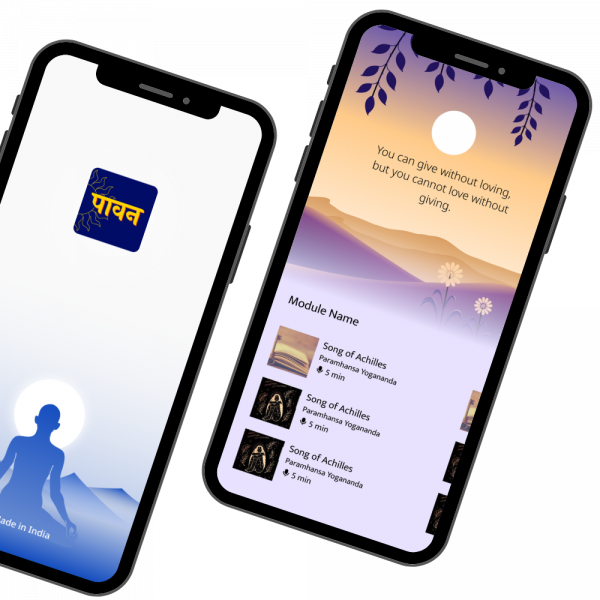Panic attacks at night. You’re alone in the dark, with only your thoughts as company. Perhaps you’ve felt that familiar sensation of your heart beating faster and your breathing becoming erratic. You might have noticed that your hands and feet tingle — a sign of feeling anxious, angry or afraid. Yes, this is the most feared part of panic disorder: the attacks at night when you are in bed and unable to escape.
Read on as we shed light on what are panic attacks, symptoms of panic attack at night, what to do during a panic attack, and answer prevalent questions.
What Is A Panic Attack?
A panic attack is an intense, sudden rush of anxiety, fear and body sensations that peak in a matter of minutes. It can feel like you’re going crazy or dying — in other words, it’s terrifying. You may experience physical symptoms like sweating, chest pain and rapid heartbeat. Your breathing might become more rapid and shallow as well. You may feel dizzy or unsteady on your feet.
Panic attacks usually begin suddenly, but they don’t always start immediately after you experience an anxious feeling. Some people with panic disorder develop the disorder after experiencing one or more anxious feelings for years before their first full-blown panic attack occurs. In the upcoming segments, we will be rounding up symptoms of panic attack at night and what to do during a panic attack.
You will also ❤️ these:
5 Easy Ways To Tackle Brain Fog Symptoms And Causes
5 Best Deep Breathing Exercise For Lungs For All Age Groups
Nocturnal Panic Attacks
Nocturnal panic attacks are a common occurrence among people with anxiety disorders. They are also known as nighttime panic attacks and occur at night, primarily during sleep. Nocturnal panic attacks can be severe and may include overwhelming fear or terror, sweating, shaking, rapid heartbeat, chest pain or palpitations (the sensation that your heart is pounding or pounding too fast), shortness of breath, dizziness and chills.
The cause of nocturnal panic attacks is not clear, but they may occur due to an underlying medical condition or medication side effects. They often happen when you least expect them; they sneak up on you like a thief in the night. Up next, we have symptoms of panic attack at night.
7 Symptoms of Panic Attack at Night
Often, the symptoms of panic attack at night are similar to those of a panic attack during the day. It is common for people who have had symptoms of panic attack at night to also experience daytime panic attacks.
The symptoms of panic attack at night include:
1. Inability to breathe or feeling as if you cannot get enough air.
2. Chest pain or pressure.
3. Feeling like you have a heart attack, or your chest is about to explode.
4. Shaking or trembling in your body.
5. Tightness in your chest, throat or limbs.
6. A feeling that something is choking you or cutting off your oxygen supply (This symptom is known as anoxia).
7. Nausea, dizziness and/or abdominal pain.
What to Do During a Nocturnal Panic Attack?
If you have any of the above symptoms of panic attack at night, here are some things to do:
- Take deep breaths. Take several slow, deep breaths when you feel your heart pounding or your throat closing up. These will help you relax and calm down.
- Get some fresh air. Go out into the fresh air for a few minutes and try to take in as much oxygen as possible through your nose and mouth. Open your windows if possible, so cool night air can circulate through your home. You may also want to turn on an exhaust fan in case it helps make you feel better by circulating the stale air in your house out into the hallways or outside into the garage or driveway, where it can get replaced with fresh oxygen during those few short minutes outside before returning inside again when it’s time for bed again.
- Try yoga poses that help open up tight muscles of the back body (like Cat-Cow). You can also try lying on your side and then rolling over onto your back with pillows supporting your head and neck. This position is called the “Lying on Side” or “Side Angle” pose in yoga, but I prefer calling it “Cat-Cow” because it is easier to think of this position as a cat sitting up!
- You might also want to consider doing a quick breathing exercise by inhaling through your nose for about half a second, then exhaling through your mouth for about half a second, repeating this several times until you feel calm again. Once you’ve gotten yourself under control, try breathing slowly and deeply. This will help your body to relax and recover from the panic attack.
- If you are suffering from an anxiety disorder, it is important to seek out professional help as soon as possible. Many treatment options are available for those suffering from anxiety disorders, such as panic attacks.
How to Stop Panic Attacks at Night?
Panic attacks are terrifying, and they can happen at any time. They’re the most common mental health problem, but their effects can be debilitating. If you have a panic attack, you may feel like your body will explode or that you’re about to die. Panic attacks are symptoms of a deeper problem, and if you don’t find a solution, they’ll only worsen.
Here Are Some Tips on How to Stop Panic Attacks at Night:
1. Identify Your Panic Attacks
The first step to stopping panic attacks at night is to identify your symptoms and triggers so you can change them. For example, if you feel like you can’t breathe when you have a panic attack, try taking slow, deep breaths while focusing on the sensation of air flowing in and out of your lungs. This can help you stay calm and relaxed throughout the night.
2. Change Your Environment
It’s important to ensure that your home environment doesn’t contribute to your anxiety or panic attacks at night. If you live with someone with a history of depression or anxiety, it might be helpful to move out for a while or reduce contact with them until the attacks become less severe. You can also try changing how you sleep by going to bed earlier or getting up early in the morning so that there is less time for anxiety-inducing thoughts during sleep (which may be causing the attacks).
3. Sleep in Complete Darkness
Research has shown that when you sleep in complete darkness, you experience an increase in melatonin production. This hormone helps control your biological clock and regulates your sleep-wake cycle. Melatonin is produced by the brain when it is dark, so exposing yourself to complete darkness before bedtime will help you get a good night’s sleep.
4. Talk to Someone About It
Talking about what is causing your panic attacks can be very therapeutic and helpful in dealing with them. This can be done by talking with your doctor or someone who knows more than you about anxiety problems like this.
5. Try Something New
If you have been experiencing panic attacks for too long without finding any solutions, then changing something in your life might help make things better for you too! Consider trying something new, like taking up yoga or meditation classes, or even going somewhere new next time!
In summary, the most important part of overcoming panic attacks at night has an effective problem-solving strategy. First, avoid over-stressing yourself when you are awake by keeping a regular sleep schedule and going to bed at the same time every night. Next, you can use breathing exercises like the one mentioned above to help calm and relax you when you feel anxious at night. If the symptoms of panic attack at night are not going away, it is imperative to consult a psychologist.
Frequently Asked Questions
Question 1: How do panic attacks feel like?
Panic attacks feel like sudden and intense periods of fear or discomfort, often accompanied by physical symptoms such as rapid heartbeat, sweating, trembling, and shortness of breath. They can also include feelings of impending doom or loss of control.
Question 2: Why panic attack happens?
Panic attacks can be caused by a variety of factors, including genetics, brain chemistry, and life experiences such as trauma or stress. They are often triggered by perceived or actual danger or threat, and can also be associated with anxiety disorders or other mental health conditions.
Question 3: Is panic attack dangerous?
While panic attacks can be extremely distressing and disruptive, they are not physically dangerous and do not typically result in any long-term health consequences. However, frequent or severe panic attacks can have a significant impact on a person’s quality of life and may require treatment or support.
Question 4: Can panic attack cause death?
It is extremely rare for a panic attack to cause death. While panic attacks can cause physical symptoms such as a rapid heartbeat or shortness of breath, these symptoms are not typically life-threatening. However, in rare cases, panic attacks can exacerbate pre-existing medical conditions such as heart disease or asthma.






